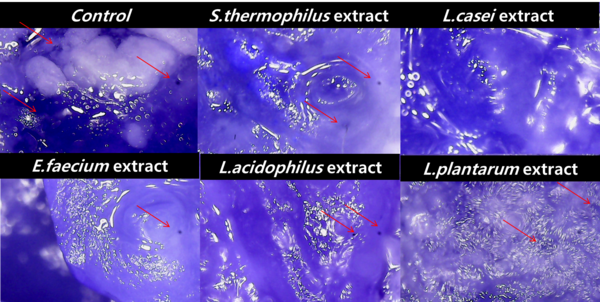The Inhibitory Effect of Probiotics on the Growth and Biofilm Formation of Salmonella Sp.
(1) Seoul International School, Seoul, South Korea, (2) Nature Science Institute, Seoul, South Korea
https://doi.org/10.59720/18-056
Salmonella is a genus of bacteria responsible for over 90 million cases of intestinal illnesses yearly. Like many bacteria, Salmonella can create a biofilm matrix, which confers stronger resistance against antibiotics. However, there has been relatively little research on the inhibition of Salmonella biofilm formation, which is a crucial factor in its widespread growth. This study was conducted to determine the anti-bacterial and anti-biofilm effects of commonly used farm probiotics on Salmonella. Salmonella species were inoculated in 0.1 A, 0.01 A, 0.001 A concentrations of filtered probiotic supernatants. Bacterial and biofilm growths were measured quantitatively with a UV spectrophotometer using absorbance values and compared qualitatively with crystal violet dye staining. All probiotic filtrate showed some levels of inhibition on Salmonella bacterial growth. For most cases, the strongest inhibitory effect was exhibited at the 0.1 A (A=1x109 bacteria/ml) concentration. For biofilm inhibition, both autoclaved and non-autoclaved filtrates showed the strongest inhibitory effects at a specific concentration of 0.001 A. In this case, higher concentrations of probiotic filtrate did not appear to correlate with stronger anti-biofilm properties. Differences in the anti-bacterial and anti-biofilm trends of probiotic filtrate suggest that they most likely inhibit growth and biofilm formation through different mechanisms. These findings also bring insight into the species-specific effects of the different probiotic species tested, and provide new information in determining optimal concentrations of probiotics that should be given to farm animals for probiotics to work most effectively against Salmonella.
This article has been tagged with: